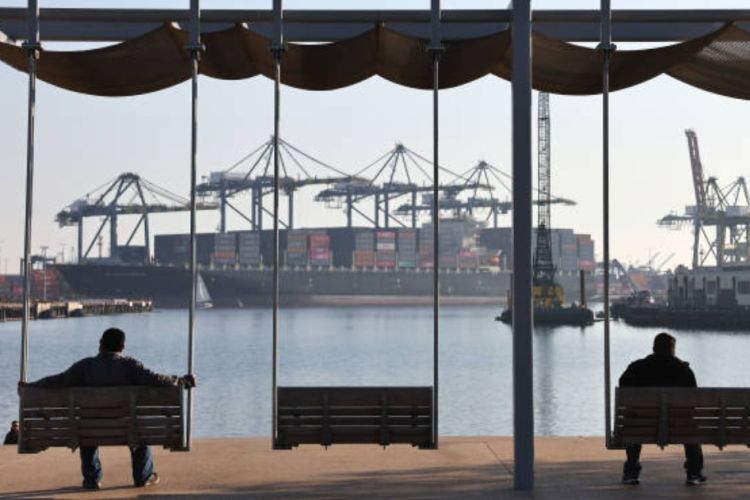
Tariff wars, a form of economic conflict characterised by the imposition of tariffs and non-tariff barriers, have historically proven to be destructive rather than beneficial. While protectionist policies seek to safeguard domestic industries and rectify trade imbalances, they often trigger retaliatory measures, disrupt global supply chains, inflate consumer prices, and weaken economic growth. The recent resurgence of tariff wars, initiated by US President Donald Trump, has reignited debates on the efficacy and long-term impact of protectionist policies.
While protectionist policies are often justified as anti-dumping measures and national security requirements, their long-term economic consequences are often severe. The persistence of protectionist measures is largely fuelled by political considerations and pressure from vested interest groups rather than sound economic rationale.
READ | Road safety: India must resolve its deadly highway crisis
A cautionary tale from the Great Depression
History provides ample evidence of the destructive consequences of tariff wars. The Smoot-Hawley Tariff Act of 1930, enacted during the Great Depression, serves as a stark reminder. Initially intended to protect US farmers, the Act resulted in tariffs on over 20,000 imported goods, prompting retaliatory measures from trading partners.
The result was a drastic 67% fall in both US exports and imports, leading to high unemployment and deepening of economic downturn. The tariff-induced price hikes and resultant decline in consumer demand further destabilised an already fragile financial system, illustrating the perils of aggressive protectionism.
Trump’s tariff war will lead to disruption
The Trump administration’s aggressive tariff policies, particularly against China, Canada, Mexico, and the European Union, marked a renewed era of economic nationalism. The US-China trade war, which began in 2018, was driven by concerns over intellectual property rights, trade imbalances, and national security. The imposition of high tariffs on Chinese imports led to reciprocal actions from Beijing, affecting industries ranging from technology to agriculture.
By 2024, US-China merchandise trade stood at $530 billion, with Chinese exports to the US amounting to over $400 billion, second only to Mexico. Canada, a key US ally, emerged as the largest purchaser of US goods in 2023, highlighting the interconnectedness of global trade. The Trump administration’s tariff policies are disrupting supply chains and increasing production costs for domestic businesses, which may lead to uncertainty in financial markets.
The Trump administration imposed substantial tariffs on steel and aluminium imports, citing national security concerns. These measures, while intended to revitalise domestic manufacturing, may lead to higher costs for American companies reliant on imported raw materials. Retaliatory tariffs from key trading partners can lead to tensions, compelling the US to temporarily pause certain tariff actions.
Impact of tariffs on the US economy
Several studies have indicated that the Trump-era tariff policies had overwhelmingly negative consequences. A report from S&P Global Ratings titled ‘Macro Effects of Proposed US Tariffs Are Negative All-Around’ highlighted key concerns, including slower GDP growth, higher unemployment, inflationary pressures, and a strengthened US dollar.
Trade restrictions lead to reduced economic output and productivity losses, while retaliatory tariffs and supply chain disruptions affected job creation in multiple industries. Higher import costs are passed on to consumers, contributing to inflation. While a stronger dollar can have certain benefits, it also makes American exports more expensive and less competitive globally.
Tariff wars and the global economy
Global economic integration has made tariff wars increasingly damaging. Modern supply chains span multiple countries, meaning that trade barriers disrupt production processes and lead to inefficiencies. Tariffs often lead to higher costs for consumers, disproportionately affecting lower-income households. Businesses reliant on global supply chains face production delays and increased costs.
Protectionist measures strain diplomatic relations and hinder multilateral trade agreements, while trade wars escalate tensions between nations, leading to broader economic and political conflicts. A report from the World Economic Forum’s Chief Economists Outlook highlight concerns about the destabilising effects of tariffs on an already fragile global economy. The application of broad-based tariffs has been described as an impending disaster, worsening geopolitical volatility and economic fragmentation.
Tariffs as a geopolitical tool
While tariffs are primarily economic instruments, they have increasingly been deployed as geopolitical tools. The Trump administration’s tariff threats were often used to gain leverage in broader negotiations, including immigration policies and national security concerns. Reports indicate that US tariff policy is also being used to counteract China’s growing influence, particularly through the BRICS alliance and efforts toward de-dollarisation. However, history suggests that such strategies have limited long-term effectiveness.
Countries targeted by tariffs often seek alternative trade partners, reducing their reliance on the US market. The push for economic self-sufficiency, particularly among US adversaries, has led to increased investments in domestic manufacturing and alternative trade routes.
Need for a balanced approach
The historical and contemporary evidence suggests that prolonged tariff wars do more harm than good. While protectionist policies may provide temporary relief for certain industries, their broader economic consequences—reduced trade, higher consumer prices, and weaker global cooperation—outweigh the short-term benefits.
A more balanced approach to trade policy is essential. Instead of unilateral tariff measures, nations should prioritise diplomatic engagement, targeted trade agreements, and multilateral dispute resolution mechanisms. The World Trade Organisation, despite its challenges, remains a crucial institution for managing global trade disputes. Countries like India and other developing economies must push for WTO reforms to ensure fair treatment for both emerging and developed nations.
Ultimately, economic nationalism driven by short-term political gains leads to instability and economic inefficiency. A collaborative and strategic approach to trade policy—one that balances national interests with global economic stability—is the need of the hour.
Dr Ravindran AM is an economist based in Kochi. He has more than three decades of academic and research experience with institutions such as CUSAT, Central University of Kerala, Cabinet Secretariat - New Delhi, and Directorate of Higher Education Pondicherry.

